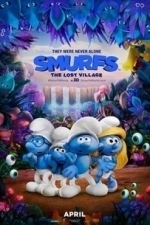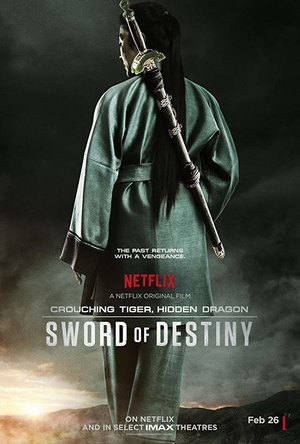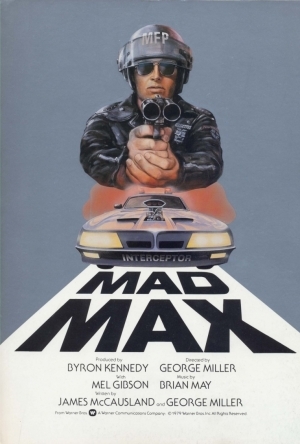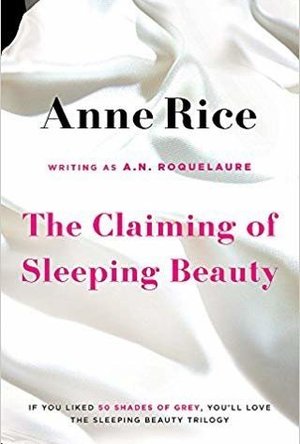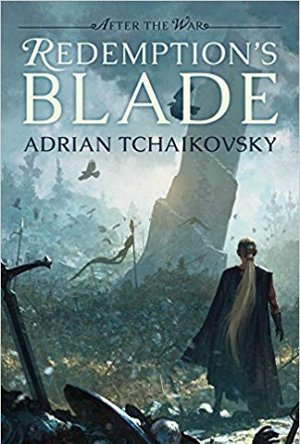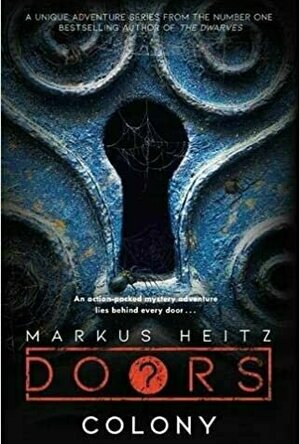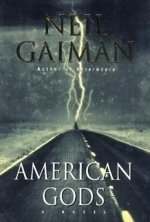Search
Gareth von Kallenbach (980 KP) rated Smurfs: The Lost Village (2017) in Movies
Jul 12, 2019
Rewind back to the 80s, what was every kid doing Saturday mornings? Watching TV and catching up on their latest Smurfs’ adventure; running from the clutches of the evil wizard Gargamel. Who’s only purpose was to catch the Smurfs steal their powers and become the most powerful wizard in the world. I couldn’t help but feel a bit of nostalgia back to my childhood while watching this movie.
The film centered around Smurfette, the only female Smurf, and her struggle to find her place in Smurf Village. Smurfette was not born a Smurf. Gargamel used his magic to turn a piece of clay into Smurfette. His intent was to have his creation, Smurfette, lead him to Smurf village and capture all the Smurfs. Fortunately, Papa Smurf had his own magic and used it to turn Smurfette from evil to good.
Fast forward to present Smurf-day, Smurfette (Demi Lovato) tries her best to fit in, but ultimately has a serious identity crisis. So what does one do when they can’t figure out who they are? They go in search of their own identity. Along the way, Smurfette crosses paths with a strange creature. Eager to find out who this creature is, against Papa Smurf”s request, Smurfette decides to enter the Forbidden Forest. An area no Smurf has even been allowed to visit. She is joined by her brothers Brainy, Clumsy, and Hefty-who unfortunately end up in Gargamel’s clutches. Gargamel (Rainn Wilson) uses his magic and finds out the there is another Smurf village, one that lies beyond the Forbidden Forest. Knowing the damage they have caused, Smurfette and her brothers trek has now changed into a rescue mission. They must reach the lost village before Gargamel and his cat, Azrael and warn the villagers of his evil plan. Who are these villagers? Hmm….
You don’t have to watch the first 2 Smurf films to understand what this one is about. They are completely different storylines and this one is 100% animation. A full return to the tone and characteristics of the beloved 80s cartoon. From the comedic gestures to the close escape from Gagamel, the movie provides loads of entertainment. It tugs at the heartstrings because we’ve all experienced self doubt. It does brush on moments of girl power and of course there are musical dance numbers. Really all the Smurfy fans that enjoyed the Smurfiness of yester-year Smurfs, will definitely find this movie the Smurftastic.
The film centered around Smurfette, the only female Smurf, and her struggle to find her place in Smurf Village. Smurfette was not born a Smurf. Gargamel used his magic to turn a piece of clay into Smurfette. His intent was to have his creation, Smurfette, lead him to Smurf village and capture all the Smurfs. Fortunately, Papa Smurf had his own magic and used it to turn Smurfette from evil to good.
Fast forward to present Smurf-day, Smurfette (Demi Lovato) tries her best to fit in, but ultimately has a serious identity crisis. So what does one do when they can’t figure out who they are? They go in search of their own identity. Along the way, Smurfette crosses paths with a strange creature. Eager to find out who this creature is, against Papa Smurf”s request, Smurfette decides to enter the Forbidden Forest. An area no Smurf has even been allowed to visit. She is joined by her brothers Brainy, Clumsy, and Hefty-who unfortunately end up in Gargamel’s clutches. Gargamel (Rainn Wilson) uses his magic and finds out the there is another Smurf village, one that lies beyond the Forbidden Forest. Knowing the damage they have caused, Smurfette and her brothers trek has now changed into a rescue mission. They must reach the lost village before Gargamel and his cat, Azrael and warn the villagers of his evil plan. Who are these villagers? Hmm….
You don’t have to watch the first 2 Smurf films to understand what this one is about. They are completely different storylines and this one is 100% animation. A full return to the tone and characteristics of the beloved 80s cartoon. From the comedic gestures to the close escape from Gagamel, the movie provides loads of entertainment. It tugs at the heartstrings because we’ve all experienced self doubt. It does brush on moments of girl power and of course there are musical dance numbers. Really all the Smurfy fans that enjoyed the Smurfiness of yester-year Smurfs, will definitely find this movie the Smurftastic.
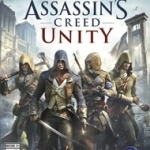
Assassin's Creed Unity
Video Game
Paris, 1789 - The French Revolution turns a once-magnificent city into a place of terror and chaos....
Darren (1599 KP) rated Crouching Tiger, Hidden Dragon: Sword of Destiny (2016) in Movies
Aug 6, 2019
Story: Crouching Tiger, Hidden Dragon: Sword of Destiny starts 18-years after Yu (Yeoh) saw her love die returns to safeguard the sword of destiny, after a warlord Hades Dai (Lee) goes in search for the sword believing it will give him the power to conquer the land.
Needing to protect the sword, Yu puts out a call for warriors to come and help defend it, which sees Silent Wolf (Yen) put together a five-person army, while Yu takes on a new student Snow Vase (Bordizzo) with skills advanced of her age.
Thoughts on Crouching Tiger, Hidden Dragon: Sword of Destiny
Characters – Yu has returned from her isolation and mourning after 18-years away only to stumble into the next attempt to steal the Sword of Destiny, here she must learn who to trust, reunite with an old ally and put herself in the teaching position. Silent Wolf has lived a life in isolation, where his loved ones believed him to be dead, he returns to help defend the sword for the greatest honour in his life. Wei Fang is a young warrior that is being forced into stealing the sword to protect his master, he learns about his past and along with Snow Vase who also has a decision of her own to make, provide the unsure future for Yu on who to trust. Snow Vase is the talented young fighter knowing skills beyond her age, she askes to be taught even if she isn’t as disciplined as she should be.
Performances – Michelle Yeoh returns to this role, she brings the fight skills that made the first one fantastic and must play the role with an emotionless feeling of being broken, which she does with ease. Donnie Yen takes up the mysterious fighter role which is a role that he could take any day and never look out of place. it is the new comers that impress in the fighting side of things, where they struggle in places with the emotional factors at play in their characters.
Story – The story here returns Yu back to the land she once fought for, where she must defend it from a new warlord that wants the sword which could bring power to control the land. This is a sequel that does well to return one of the favourites which also dives into her past to bring a new character, while also offer people that could become the new leads if the series was going to continue. When we break down the story it does play into tradition of being loyal and honour. It would have been nice to see more from the villain which only has a few moments which are just generic villain style, without seeing him do anything truly villainous.
Action/Fantasy – The action in the film is the martial arts material we have enjoyed for years, we have the weightless effects which were famous from the first which add the style required to be unique. This does play into the fantasy of the action which goes against the physics of fighting.
Settings – The film brings back the settings we knew and still look fantastic, with the final showdown being in a new location which is used to add to the fight.
Special Effects – The effects are used to make the fights feel like they could be real, the weightless style is the best part of the fights.
Scene of the Movie – Final fight.
That Moment That Annoyed Me – Certain moments of the Wei Fang and Snow Vase does drag at times.
Final Thoughts – This is a fun sequel to a much more superior original, it will entertain without being anywhere near the level original.
Overall: Entertaining for the fans.
Needing to protect the sword, Yu puts out a call for warriors to come and help defend it, which sees Silent Wolf (Yen) put together a five-person army, while Yu takes on a new student Snow Vase (Bordizzo) with skills advanced of her age.
Thoughts on Crouching Tiger, Hidden Dragon: Sword of Destiny
Characters – Yu has returned from her isolation and mourning after 18-years away only to stumble into the next attempt to steal the Sword of Destiny, here she must learn who to trust, reunite with an old ally and put herself in the teaching position. Silent Wolf has lived a life in isolation, where his loved ones believed him to be dead, he returns to help defend the sword for the greatest honour in his life. Wei Fang is a young warrior that is being forced into stealing the sword to protect his master, he learns about his past and along with Snow Vase who also has a decision of her own to make, provide the unsure future for Yu on who to trust. Snow Vase is the talented young fighter knowing skills beyond her age, she askes to be taught even if she isn’t as disciplined as she should be.
Performances – Michelle Yeoh returns to this role, she brings the fight skills that made the first one fantastic and must play the role with an emotionless feeling of being broken, which she does with ease. Donnie Yen takes up the mysterious fighter role which is a role that he could take any day and never look out of place. it is the new comers that impress in the fighting side of things, where they struggle in places with the emotional factors at play in their characters.
Story – The story here returns Yu back to the land she once fought for, where she must defend it from a new warlord that wants the sword which could bring power to control the land. This is a sequel that does well to return one of the favourites which also dives into her past to bring a new character, while also offer people that could become the new leads if the series was going to continue. When we break down the story it does play into tradition of being loyal and honour. It would have been nice to see more from the villain which only has a few moments which are just generic villain style, without seeing him do anything truly villainous.
Action/Fantasy – The action in the film is the martial arts material we have enjoyed for years, we have the weightless effects which were famous from the first which add the style required to be unique. This does play into the fantasy of the action which goes against the physics of fighting.
Settings – The film brings back the settings we knew and still look fantastic, with the final showdown being in a new location which is used to add to the fight.
Special Effects – The effects are used to make the fights feel like they could be real, the weightless style is the best part of the fights.
Scene of the Movie – Final fight.
That Moment That Annoyed Me – Certain moments of the Wei Fang and Snow Vase does drag at times.
Final Thoughts – This is a fun sequel to a much more superior original, it will entertain without being anywhere near the level original.
Overall: Entertaining for the fans.
Phillip McSween (751 KP) rated Mad Max (1979) in Movies
Jan 5, 2018
Decent
Guilty confession: Typically when I watch a "classic" or a film I've really been looking forward to, I go into it expecting to like it. In other words, the film is already ahead of the curve when it comes to my grading scale. It has to do a lot to let me down. I hate to say it, but Mad Max? It let me down. Not in the sense that it was bad, but rather in the sense that I was hoping for more.
Max is a police officer in a post-apocalyptic world where biker gangs rule the road. After his partner is brutally burned by one of the most dangerous gangs, Max decides to retire but a terrible turn of events sucks him right back in.
The film got off to a slow start for me. I was confused by what was happening and why it was happening. It's not a good sign when I have to jump on to Wikipedia to clarify things. Unfortunately things never quite bounced back for me after that. I spent a good majority of the film thinking, "What are the stakes for Max? Why should I care about his character?" You're not really given a ton of insight into who he is and why he's a hero you want to root for. Read to kids in the hospital. Pull a cat out of a tree. Do something! Give me a reason to care. I don't think that's too much to ask for.
Despite my issues with the film, Mad Max is carried by a solid performance from Gibson. Visceral rage just oozes from the man as he goes out for his revenge. He's got that look, one we've seen in many films before. A look that says, "I'm crazy and I want you to know it." His passion in the role is a shining spot.
The film also benefits from solid world-building. Though you're only given a small taste, it's all you need to see. The road is what's important, the heartbeat of the film. You witness it in the attention to detail behind the cars (Max's car in the end was dope) and the gangs' constant power struggle over maintaining territory. The road is a wasteland, yet extremely vital for those living in it.
I'm giving Mad Max a 73. Perhaps that's not a bad thing. For a movie to be missing some key components and still get a decent score says a lot. It's kind of like eating at an expensive restaurant: When you see your plate, you're slightly let down because you were hoping for more, but you quickly find that the portion you received was good enough.
Max is a police officer in a post-apocalyptic world where biker gangs rule the road. After his partner is brutally burned by one of the most dangerous gangs, Max decides to retire but a terrible turn of events sucks him right back in.
The film got off to a slow start for me. I was confused by what was happening and why it was happening. It's not a good sign when I have to jump on to Wikipedia to clarify things. Unfortunately things never quite bounced back for me after that. I spent a good majority of the film thinking, "What are the stakes for Max? Why should I care about his character?" You're not really given a ton of insight into who he is and why he's a hero you want to root for. Read to kids in the hospital. Pull a cat out of a tree. Do something! Give me a reason to care. I don't think that's too much to ask for.
Despite my issues with the film, Mad Max is carried by a solid performance from Gibson. Visceral rage just oozes from the man as he goes out for his revenge. He's got that look, one we've seen in many films before. A look that says, "I'm crazy and I want you to know it." His passion in the role is a shining spot.
The film also benefits from solid world-building. Though you're only given a small taste, it's all you need to see. The road is what's important, the heartbeat of the film. You witness it in the attention to detail behind the cars (Max's car in the end was dope) and the gangs' constant power struggle over maintaining territory. The road is a wasteland, yet extremely vital for those living in it.
I'm giving Mad Max a 73. Perhaps that's not a bad thing. For a movie to be missing some key components and still get a decent score says a lot. It's kind of like eating at an expensive restaurant: When you see your plate, you're slightly let down because you were hoping for more, but you quickly find that the portion you received was good enough.
Rachel King (13 KP) rated The Claiming of Sleeping Beauty (Sleeping Beauty, #1) in Books
Feb 11, 2019
Anne Rice wrote a trilogy of books under the pen name A. N. Roquelaure, based on the fairy tale Sleeping Beauty. These books were titled The Claiming of Sleeping Beauty, Beauty's Punishment (Sleeping Beauty), and Beauty's Release: The Conclusion of the Classic Erotic Trilogy of Sleeping Beauty. Yep, you read it right - erotica. The set is the only thing I have ever read by Anne Rice, and the only erotica books I have ever read. I have told maybe one or two other people that I have read the series, because it just does not match up with my "good girl" persona, and it resulted in the shocked expression I was expecting. Why would I read such an abomination? One part boredom, one part fairy tale superfan, and three parts secret naughty indulgence/curiousity (one for each book) - I found the books at a slow point while working at a bookstore, and sneakily read them at the customer service desk when I had nothing else to do.
In the first book, Beauty is awakened from her hundred-year sleep with a deflowering by the Prince. He takes her to his kingdom, where she is trained as a sexual slave and plaything, but she fails to be obedient, so is sent to brutal slavery in the neighboring village. In the second book, she is sold at auction and a power struggle ensues as she refuses to be completely broken by her various punishments. Actual plotline wanes in this one until towards the end some of the psychological aspects of sexual slavery are explored before Beauty is kidnapped for a Sultan. In the third book, the various characters all reach closure in varying forms as the sexual aspects of the plot take on a more religious and philosophical tone, as opposed to the crudity of the European castle and village. By the end of the series, it felt more like I was reading a study of a lifestyle for the education and not so much for the indulgence.
The sexual scenes are extremely explicit and graphic with the theme of sado-masochism replete throughout the text, but amazingly, there is still a plotline and decent character development. The first book was my favorite of the three, simply because that is the only book of the three that actually uses the fairy tale in its plotline, and by the third book much of the sex seemed vaguely repetitive and did not affect me as intensely as it did in the beginning. I would even dare to recommend it to those who are of the appropriate age.
I likely have A. N. Roquelaure's influence to thank for my unquestioning devotion to the Kushiel's Legacy series by Jacqueline Carey, now that I think about it...
In the first book, Beauty is awakened from her hundred-year sleep with a deflowering by the Prince. He takes her to his kingdom, where she is trained as a sexual slave and plaything, but she fails to be obedient, so is sent to brutal slavery in the neighboring village. In the second book, she is sold at auction and a power struggle ensues as she refuses to be completely broken by her various punishments. Actual plotline wanes in this one until towards the end some of the psychological aspects of sexual slavery are explored before Beauty is kidnapped for a Sultan. In the third book, the various characters all reach closure in varying forms as the sexual aspects of the plot take on a more religious and philosophical tone, as opposed to the crudity of the European castle and village. By the end of the series, it felt more like I was reading a study of a lifestyle for the education and not so much for the indulgence.
The sexual scenes are extremely explicit and graphic with the theme of sado-masochism replete throughout the text, but amazingly, there is still a plotline and decent character development. The first book was my favorite of the three, simply because that is the only book of the three that actually uses the fairy tale in its plotline, and by the third book much of the sex seemed vaguely repetitive and did not affect me as intensely as it did in the beginning. I would even dare to recommend it to those who are of the appropriate age.
I likely have A. N. Roquelaure's influence to thank for my unquestioning devotion to the Kushiel's Legacy series by Jacqueline Carey, now that I think about it...
Ross (3284 KP) rated Redemption's Blade: After the War in Books
Jun 15, 2018
Storyline is not engaging (2 more)
Reading the aftermath of events that you have no knowledge of
I'm still not 100% sure there wasn't an earlier book I'm meant to have read
A sequel to a book not written yet (that sounds more interesting)
*Disclosure - I received an advance copy of this book from NetGalley in exchange for an honest review*
Over the last few months I have been lucky to read three new Tchaikovsky books. As this was the first fantasy book of those three (the other two being war sci-fi) I had fingers crossed for a return to the heights of the Shadows of the Apt series. I was sadly disappointed.
The scope of this book is truly epic in every sense. The world we are thrown into has a diverse range of beings, species, cities, religions and beliefs and a rich history. The events follow on from the end of a tyrannical reign of the Kinslayer, a power-mad demi-god who tried to break the spirit of those races he didn't just wipe out. We see the Kinslayer-slayer Celestaine's attempts to do good in the aftermath of this war, and try to make one species whole again. This aim leads her on a journey across the world where we are introduced to a range of new peoples and places. The journey goes on from place to place, the company increasing all the while.
I have real respect for Tchaikovsky trying to do something new - tell the story that follows on from a somewhat typical fantasy tale. Sadly for me, the story that went before sounds so much more interesting and engaging - the besting of a truly despicable being. This story is instead something of an empty, largely pointless journey. The ending leads us to believe someone had been luring people with the promise of magical items, to come to him and ultimately their doom - however, the trail leading to him was not exactly clear and the chances of anyone following it would be minimal (let alone someone following it at exactly the right pace to witness certain key events!). The world-building is epic and yet completely forgettable. I found myself forgetting who people were, why they were doing things and I completely missed one major reveal in the final chapters, only to re-read and find that there pretty much was no reveal.
I am a fan of Tchaikovsky's writing style but for me this book was a struggle to get through. I had no feelings towards any of the characters and couldn't remember or care where they had been or why, or what had happened. Not a worthwhile investment of my time.
Over the last few months I have been lucky to read three new Tchaikovsky books. As this was the first fantasy book of those three (the other two being war sci-fi) I had fingers crossed for a return to the heights of the Shadows of the Apt series. I was sadly disappointed.
The scope of this book is truly epic in every sense. The world we are thrown into has a diverse range of beings, species, cities, religions and beliefs and a rich history. The events follow on from the end of a tyrannical reign of the Kinslayer, a power-mad demi-god who tried to break the spirit of those races he didn't just wipe out. We see the Kinslayer-slayer Celestaine's attempts to do good in the aftermath of this war, and try to make one species whole again. This aim leads her on a journey across the world where we are introduced to a range of new peoples and places. The journey goes on from place to place, the company increasing all the while.
I have real respect for Tchaikovsky trying to do something new - tell the story that follows on from a somewhat typical fantasy tale. Sadly for me, the story that went before sounds so much more interesting and engaging - the besting of a truly despicable being. This story is instead something of an empty, largely pointless journey. The ending leads us to believe someone had been luring people with the promise of magical items, to come to him and ultimately their doom - however, the trail leading to him was not exactly clear and the chances of anyone following it would be minimal (let alone someone following it at exactly the right pace to witness certain key events!). The world-building is epic and yet completely forgettable. I found myself forgetting who people were, why they were doing things and I completely missed one major reveal in the final chapters, only to re-read and find that there pretty much was no reveal.
I am a fan of Tchaikovsky's writing style but for me this book was a struggle to get through. I had no feelings towards any of the characters and couldn't remember or care where they had been or why, or what had happened. Not a worthwhile investment of my time.
Ross (3284 KP) rated Doors: Colony in Books
Mar 26, 2021
A slight improvement over the other book
This is another in Heitz's Doors series, three books telling the same underlying story up to a point, with a different story taking off depending on which of the mysterious doors the characters go through. In this book, the group of people employed to find and rescue rich Van Dam's daughter go through the door marked with a question mark. They find themselves in the cellar of a German bierhall in an alternative history of WWII. The war is over, the Germans having capitulated after Hitler's assassination and there is now a struggle between the Russians and the UK/USA over control of what remains.
The group find themselves slimmed down very quickly as members of the group drop like flies. Soon a small number of them find themselves in the company of some Russian spies, looking to stop the Americans' attempts to take power. For some reason, phony clairvoyant Coco Fendi now has actual powers and is capable of mind-reading, earning the respect and assistance of these spies.
There then follows a fairly enjoyable attempt to catch up with a train and board it to stop a nuclear war from breaking out.
The translation again is quite poor here, as some phrases do not make sense and make the reader work to understand what is meant. I am giving Heitz the benefit of the doubt and laying blame at the door of the translator here (though looking at some of the reviews on goodreads in German I'm not sure this is fair). However, there are some very odd passages that take the reader right out of the book, for example 'the time had come to test the 4x4's four-litre twin turbo engine promising 650 horsepower and a top speed of 190 miles an hour'. I mean, what the hell? Has Clarkson been asked to translate this book? It was completely irrelevant and odd.
In the 'Twilight' book of the series, there were some hints at other users of the doors and their purpose and provenance. This book builds on that to an extent, which is a clever idea from Heitz - in order to answer the questions, I think you need to read all three books. However, as a book in its own right, there are simply too many unanswered questions left (though slightly fewer than in 'Twilight').
An improvement, with a more coherent story once through the door in question, but still not a great read. As the first c25% is duplicated between books, I merrily skipped through this section looking for the distinct part starting off.
I received a free advance copy from the publisher and NetGalley in exchange for an honest review.
The group find themselves slimmed down very quickly as members of the group drop like flies. Soon a small number of them find themselves in the company of some Russian spies, looking to stop the Americans' attempts to take power. For some reason, phony clairvoyant Coco Fendi now has actual powers and is capable of mind-reading, earning the respect and assistance of these spies.
There then follows a fairly enjoyable attempt to catch up with a train and board it to stop a nuclear war from breaking out.
The translation again is quite poor here, as some phrases do not make sense and make the reader work to understand what is meant. I am giving Heitz the benefit of the doubt and laying blame at the door of the translator here (though looking at some of the reviews on goodreads in German I'm not sure this is fair). However, there are some very odd passages that take the reader right out of the book, for example 'the time had come to test the 4x4's four-litre twin turbo engine promising 650 horsepower and a top speed of 190 miles an hour'. I mean, what the hell? Has Clarkson been asked to translate this book? It was completely irrelevant and odd.
In the 'Twilight' book of the series, there were some hints at other users of the doors and their purpose and provenance. This book builds on that to an extent, which is a clever idea from Heitz - in order to answer the questions, I think you need to read all three books. However, as a book in its own right, there are simply too many unanswered questions left (though slightly fewer than in 'Twilight').
An improvement, with a more coherent story once through the door in question, but still not a great read. As the first c25% is duplicated between books, I merrily skipped through this section looking for the distinct part starting off.
I received a free advance copy from the publisher and NetGalley in exchange for an honest review.
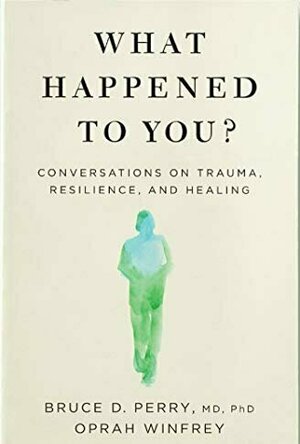
What Happened To You?
Oprah Winfrey and Bruce D. Perry
Book
Oprah Winfrey and renowned brain development and trauma expert, Dr Bruce Perry, discuss the impact...
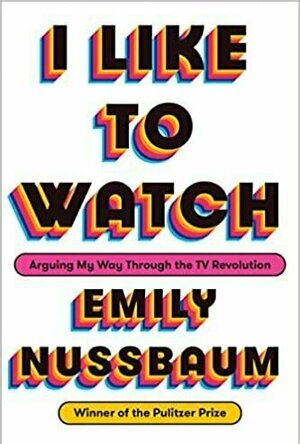
I Like to Watch: Arguing My Way Through the TV Revolution
Book
From The New Yorker's fiercely original, Pulitzer Prize-winning culture critic, a provocative...
Rachel King (13 KP) rated American Gods in Books
Feb 11, 2019
I have only ever read one other adult book ( I don't count Coraline) by Gaiman, which was vastly different from this book in both style and mood - Stardust. A friend recommended I read this book many years ago since I like mythology. I found this book really had not much to do with mythology in the classic sense. Instead the characters that were pulled from mythology, such as Odin, Anansi, Horus, Bast, and Ganesha, among others, behaved like has-been D-list celebrities that struggle to survive in a country that is repeatedly described as "...a bad land for gods." The powers they rarely put on display were minimal and amounted to the same kind of "magic" as a skilled pick-pocket, con-artist, or amateur magician. The few times any real power is observed is once during the sexual scene of a re-invented Queen of Sheba (I'll spare you the R-rated details) and when the gods travel "behind the scenes," a state of existence that only the gods can enter.
While the names of classical mythology fit into the category of the Old Gods, there are New Gods that have taken root in America, born from cultural obsessions that have evolved and devolved over the years, such as railroads - a man dressed as a railroad conductor, television - a voice talking through Lucille Ball on a rerun of I Love Lucy, vehicles - stocky men that seemed to resemble vehicles themselves, and internet - a short, nerdy, nervous kid, among other American fixations and stereotypes.
In addition, one of the scenic devices used throughout the plot is what Gaiman's characters describe as places of power - side-of-the-road dives that road-trippers visit for no apparent reason, such as a place boasting the largest doll collection in America or the biggest wheel of cheese. And no, Disneyworld is not one of them.
One of the things I found interesting about this Gaiman-born world is that the Old Gods only exist in the New World when regular people travel from other countries and bring their memories and practices with them, even when they don't intend to stay themselves. The gods are "born" from these average people, and even though they can be killed by others, they don't die otherwise, but instead alternately starve or thrive based on the behavior of the people who live and die in the New World. They all have counterpart manifestations of themselves in the countries they are pulled from, but one's existence does not affect the other - though they do seem to be aware of each other.
All of this is merely the background of the main plot, which centers around the activities and travels of a seemingly mortal man with a single name, Shadow. I never did "get" the one-name thing, but whatever. Through Shadow's narration, the reader learns of an impending storm - a battle between the Old Gods and New Gods, the former fighting for survival and the latter fighting for dominance. Shadow works for a mysterious "Mr. Wednesday" and is randomly haunted by his dead wife, Laura, but otherwise seems to have little drive of his own for most of the book. In fitting irony, he has his own brand of "magic" - an obsession for coin tricks to pass the time from his days spent in prison - which I could never really follow the descriptions of.
To be completely honest, I truly did enjoy this book, though I am struggling to say exactly why. Perhaps I was fascinated by the "shadowy" way that Gaiman told the story, or how he developed this over-the-hill world of gods and goddesses that better resembled America's middle and poor classes' struggles for survival, money, and influence. Some of the personal touches that Shadow's character added to the plot made him at times surprisingly endearing. In addition, the way that Shadow seemed to address the reader at the very end of the book was so satisfying that I laughed out loud and had to read it again several times. Something about that just brought the book to life for me and help me to fully appreciate the versatile style of Gaiman. This is one of those books you don't have to fully understand to fully appreciate.
While the names of classical mythology fit into the category of the Old Gods, there are New Gods that have taken root in America, born from cultural obsessions that have evolved and devolved over the years, such as railroads - a man dressed as a railroad conductor, television - a voice talking through Lucille Ball on a rerun of I Love Lucy, vehicles - stocky men that seemed to resemble vehicles themselves, and internet - a short, nerdy, nervous kid, among other American fixations and stereotypes.
In addition, one of the scenic devices used throughout the plot is what Gaiman's characters describe as places of power - side-of-the-road dives that road-trippers visit for no apparent reason, such as a place boasting the largest doll collection in America or the biggest wheel of cheese. And no, Disneyworld is not one of them.
One of the things I found interesting about this Gaiman-born world is that the Old Gods only exist in the New World when regular people travel from other countries and bring their memories and practices with them, even when they don't intend to stay themselves. The gods are "born" from these average people, and even though they can be killed by others, they don't die otherwise, but instead alternately starve or thrive based on the behavior of the people who live and die in the New World. They all have counterpart manifestations of themselves in the countries they are pulled from, but one's existence does not affect the other - though they do seem to be aware of each other.
All of this is merely the background of the main plot, which centers around the activities and travels of a seemingly mortal man with a single name, Shadow. I never did "get" the one-name thing, but whatever. Through Shadow's narration, the reader learns of an impending storm - a battle between the Old Gods and New Gods, the former fighting for survival and the latter fighting for dominance. Shadow works for a mysterious "Mr. Wednesday" and is randomly haunted by his dead wife, Laura, but otherwise seems to have little drive of his own for most of the book. In fitting irony, he has his own brand of "magic" - an obsession for coin tricks to pass the time from his days spent in prison - which I could never really follow the descriptions of.
To be completely honest, I truly did enjoy this book, though I am struggling to say exactly why. Perhaps I was fascinated by the "shadowy" way that Gaiman told the story, or how he developed this over-the-hill world of gods and goddesses that better resembled America's middle and poor classes' struggles for survival, money, and influence. Some of the personal touches that Shadow's character added to the plot made him at times surprisingly endearing. In addition, the way that Shadow seemed to address the reader at the very end of the book was so satisfying that I laughed out loud and had to read it again several times. Something about that just brought the book to life for me and help me to fully appreciate the versatile style of Gaiman. This is one of those books you don't have to fully understand to fully appreciate.
